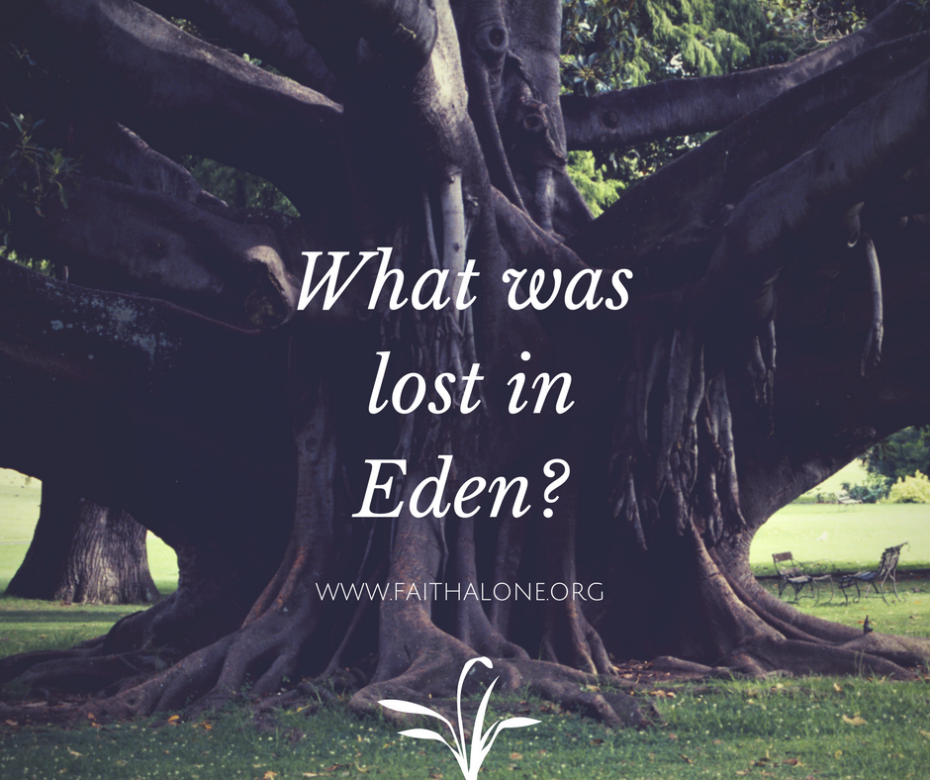Does the Bible emphasize the eternality of salvation? When OT and NT people thought of salvation, was “living forever” a new idea or a basic one? Is that something they believed in God to provide?
To answer those questions, consider Genesis 1-3.
You know the story.
You know that God created Adam and Eve and put them in the garden of Eden.
Here’s a question: If Adam and Eve hadn’t sinned, what would have happened? Would they have grown old and died? Or would they have lived forever with God?
I think they would have lived forever, don’t you? That was God’s original design for man.
Not that Adam and Eve were immortal.
To be immortal means being incapable of dying. Since Adam and Eve did die, they were capable of it. That’s why God warned them about eating the forbidden fruit. It would bring death.
And it’s not that Adam and Eve had eternal life, either.
The Biblical concept of eternal life is “thicker” than having unending existence. To have eternal life is to have God’s own kind of life, involving a spiritual rebirth (John 3:3, 6), and partaking of the divine nature (2 Pet 1:4). That’s not the kind of life Adam and Eve had before they sinned. But it’s the kind of life they needed after they fell. However, unending existence is certainly an important part of having eternal life.
So in Genesis 1-3, at the very beginning of human history and the Scriptures, something important was lost—living forever with God.
Isn’t that the great tragedy of the fall?
And isn’t the story of salvation, from Genesis onwards, about getting back to that original plan?
Redemption history seeks to answer the question—what will God do? How can God restore what was lost?
How can man live forever with God?
Those of us in the Free Grace movement know there’s only one answer: by believing in Jesus for everlasting life.
If you believe in Jesus for everlasting life, you have that life as a present possession (John 3:16). If you do not believe, you’re condemned already (John 3:18).
When Jesus evangelized by telling people to believe in Him for everlasting life, promising believers would “never die” (John 11:25-26), He was not speaking a new and strange language. He was not speaking about a new subject no one ever thought of or hoped for.
When Jesus spoke about eternal life, He was speaking the language of Genesis 1-3.


